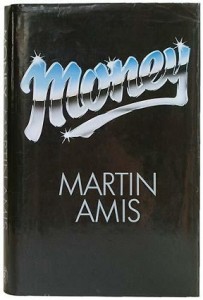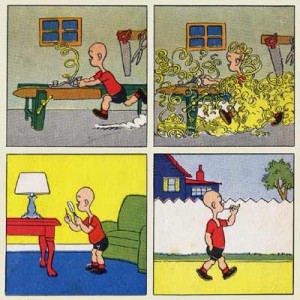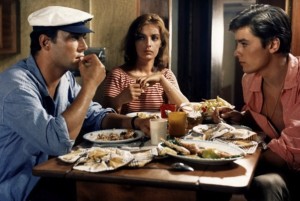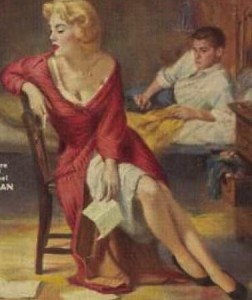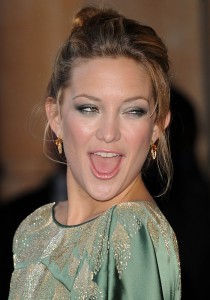Remember Money: A Suicide Note?
I love this book! I even love the gross protagonist, “John Self”, a fat, gambling, chain smoking, pill-popping, rotting toothed alcoholic, guzzling junk food, lines of cocaine “the size of a hangman’s rope”, booze, cigarettes, pornography and hookers in seamy bars, brothels, strip clubs and video arcades. In his words, he is “addicted to the 20th century”. As a “top commercial director” ala “Mc G” he’s both producer and gluttonous consumer of every corrupting piece of filthy lucre the 1980’s has to offer. The plotless plot of Money is kind of an old-fashioned cautionary tale like a Captain of Industry with vulgar, satirical, sadly realistic portraits of life in the fast lane in the Reagan/Thatcher/Carrington era. When Mr. Self is summoned to Hollywood to direct a film called “Big Money”, featuring a parodic cast of pathetic and idiotic actors, he is plunged into a frenzy of debauchery and decay, and after a betrayal and botched suicide attempt his high rollin’ life speedballs to a screeching halt and beats a hasty retreat to London, broke, trying to make sense of his miserable existence and confront the fallout of his private hell of lonely gratification, while facing a whole new set of problems.
An excerpt from a 1987 interview with Money’s author – Martin Amis – by Patrick McGrath in BOMB 18. Amis says about John Self:
I never had any doubts about him of course. I always adored him. I was pretty surprised that in America, particularly—America is not noted for a sense of irony—they had absolutely no trouble with him. But one or two reviewers in London, even intelligent reviewers, said that it is really very depressing, which I couldn’t understand because I thought the book erred on the side of mad exuberance really. He’s not very nice, it’s true, but he’s certainly generous, and he wants to get rid of all this money that he’s somehow got hold of. He gives money away in the street. He’s capable of generous thoughts. I think Updike said a good thing about this. He said it’s very mysterious what we like and don’t like in fictional characters. And he said what we like in the end, I suspect, is life. If they’ve got that, it doesn’t matter. There’s a bit of Nabokov that’s very good on this too. He says that actually you don’t punish villains, you certainly don’t anymore, you show them wiggling a matchstick in a profitable nostril, you show them as ridiculous, and that’s much better than portraying them as tiptoeing conspirators.
Martin Amis is not Michael Crichton or even John Grisham, or that woman who wrote Twilight. He is literary and satiric, his writing is bursting at the shoulder pads with chimeric language, cartoonish descriptions, acerbic, show biz fast talk, comic irony and “double-voicing” so that the narrator’s words reverberate with double, authorial meaning. John Self’s depression-den apartment is “the Sock”, a haircut is “a rug-rethink”. My favorite: a limousine is a “a six-door Autocrat, half a block long, complete with zooty chauffeur and black bodyguard riding shotgun”. Self’s car is a purple “Fiasco” – ‘a vintage-style coupe with oodles of dash and heft and twang.’ He invests his car with powers well beyond its mechanical function. “It’s temperamental, my Fiasco, like all the best racehorses, poets and chefs”. In one hilarious (Charles) Bovarian situation, ashamed of ”not knowing anything”, Self is trapped in a seat at the Met during a performance of ”Othello”, wearing a suffocating cummerbund, having to pee or poop. His thinks ”Luckily I must have seen the film or the TV spinoff. . . . The language problem remained a problem but the action I could follow without that much effort.” How do you film that? Or this:
Now the way I figured it I had six realistic options. I could sack out right away, with some scotch and a few Serafim. I could go back to the Happy Isles and see what little Moby was up to. I could call Doris Arthur. I could catch a live sex show around the corner, in bleeding Seventh Avenue. I could go out and get drunk. I could stay in and get drunk. In the end I stayed in and got drunk. The trouble was, I did all the other things first.
Money is one of the last novels you would expect to see in the development bin because it is “unfilmable” but apparently the word “unfilmable” is increasingly not in the development department dictionary and the BBC has adapted the book as a two-part drama for part of something called their “1980’s” series (I have got to get BBC). First of all, John Self does not have hippie hair and a moustache. He just doesn’t! Money, however, is just the latest supposedly unfilmable book to be sentenced to celluloid. MoneyBall. Really? The ne plus ultra of unfilmable comics Watchmen? A 388-word classic children’s book about imaginary monsters? Breakfast of Champions, less a legitimate “movie”, than an excrutiating, middle-aged man crisis torture session, trying to convey Vonnegut’s prose through unrelenting, headache-inducing hysteria, wacky camera angles and lots of shrieking. Even the venerable David Cronenberg surrenderd to Crash, probably the most obviously unfilmable exciting book I have never read. And now Marmaduke? What about that comic strip with the bald boy who doesn’t actually speak, Henry?
This could be a movie.
Attempts to film the unfilmable Confederacy of Dunces have been downright suicidal! Each time a fat actor was slated to play Ignatius, he died: John Belushi, John Candy, Chris Farley. Maybe it’s the bi-polar spirit of John Kennedy Toole, who sent his comic masterpiece to Simon and Schuster, only to have it rejected as not “really about anything”, at which point he ran a garden hose from the exhaust pipe in through the window of his car and committed suicide. Ironically (for the sake of this blog post), after his posthumous success, Toole’s only other novel is The Neon Bible, which he wrote at age 16 was published and adapted into a feature film in 1995, a grand scale critical and commercial failure.
Now that it’s gatekeeper is dead, the unfilmable Catcher in the Rye suddenly becomes very filmable, and a beloved novel whose charm lies solely in the deeply personal adolescent thoughts of a boy, and an interior monologue so achingly indelible, the only way it will be adapted for film will be by way of the crippling “voiceover”. The screenplay for Adaptation relegated The Orchid Thief to a subplot in a story about……a screenwriter. Sometimes, what makes a novel “unfilmable” is its very essence: strip the wikipedia footnotes from Special Topics in Calamity Physics or the footnotes-on-footnotes from Infinite Jest and there really isn’t anything left. I think most books are “unfilmable”. And I hate when people say about a book they liked “it would make a great movie” because 90% of the time, no, it would not be a “good movie” because 90% of all movies are terrible. Why do you want to see a book you love made into a movie? But sometimes no matter how decent a film, the brilliance of the novel extinguishes the film’s memory. Lolita is a skinny and brown haired waif, not Sue Lyons. I thought The Talented Mr. Ripley film version of the book that I love too much was good, but Marge is and never will be Gwyneth Paltrow.
More Marge than Gwyneth, but still not Marge. (from Plein Soleil).
It’s true that some books are “too filmable’. I mean, how hard was it to make a not-boring or embarrassing movie out of a salacious and satirical book like The Bonfire of the Vanities, the screenplay adaptation which eviscerated the made for movie book. Or Less Than Zero, or Bright Lights, Big City? All annoying messes. What about Prozac Nation which I loved and I’m told was filmed but where is it? Tom Wolfe’s latest novel I am Charlotte Simmons and the aforementioned wikipedia produced novel Special Topics in Calamity Physics are both bad, but practically begging for Natalie Portman, but where are they? Will they go the way of Prozac Nation or The Secret History, a novel my friends and I all devoured and was so obviously identifiable as a future movie – a clever and suspenseful, murder-mystery- in- reverse version of a tried and true inspirational-professor Hollywood genre with melodramatic events like Dionysian rites and intimations of satanic power made for the silver screen fodder – that the only question was who was going to play Camilla Macaulay, Gwyneth Paltrow or Winona Ryder?
As I was about to finish this post, I happened upon some tripe about Kate Hudson’s body image, through which I learned that The Killer Inside Me has been made into a movie. The director, Michael Winterbottom, recently adapted the parodically unfilmable Tristram Shandy into A Cock and Bull Story which I haven’t seen but is supposed to be mind-bogglingly horrible. Jim Thompson’s “story”, is “about” an unremarkable, small town deputy sheriff who is gradually revealed to be psychotic and deranged, and a vicious sexual murderer. Sounds like a movie, right? Any movie. A Lifetime movie. The brilliance of The Killer Inside Me is in Thompson’s dialogue and plotting, not the depravity and brutality of it’s protagonist. I don’t even care who is playing Sheriff Ford, I didn’t get beyond the casting of two of the worst actresses on the planet, Jessica Alba and Kate Hudson.
A JIm Thompson woman.
Seriously????
Raymond Chandler, who wrote the screenplay for the film version of Double Indemnity said about the novelist, great crime writer James M Cain: “He is every kind of writer I detest, a faux naïf, a Proust in greasy overalls, a dirty little boy with a piece of chalk and a board fence and nobody looking”. Both raging alcoholics, Chandler had a wildly successful career both as a screenwriter and novelist and Cain -a failed screenwriter but a prolific writer, penning the novels The Postman Always Rings Twice, Double Indemnity Mildred Pierce – died a perceived failure. But he left behind one pearl of wisdom that kind of sums up this whole mess. Because, not for nothing does Hollywood refer to its acquisitions with the weirdly vague term “”based ons” or worse “versions”. When a journalist complained that Hollywood had ruined his novels in adaptation James M Cain pointed to his bookshelves. “The movies didn’t ruin any of them,” he said. “They’re all right up there.”

